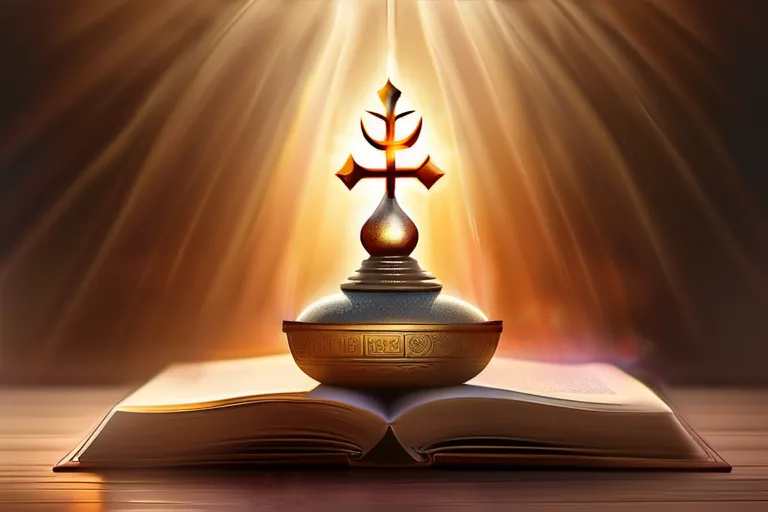Exploring the philosophical beliefs and teachings of various world religions on the purpose and significance of human existence.
In this comprehensive article, we delve into the profound question of what gives life its meaning, as understood by several major world religions. From the spiritual quest for enlightenment in Buddhism to the eternal reward in Christianity, we explore the diverse perspectives that have shaped human thought and behavior throughout history.
The Buddhist Path to Enlightenment
The meaning of life according to Buddhism is a profound journey towards enlightenment, often described as finding freedom from suffering. How can one truly understand this path if we simply follow life’s routine without questioning its deeper purpose?
In Buddhism, the Four Noble Truths lay the foundation for understanding the nature of suffering and the means to overcome it. The first truth states that suffering (dukkha) is an inherent part of existence. Is this just a bleak outlook or does it provide a clear path towards transformation?
The second truth identifies the origin of suffering, which arises from desire and attachment. The third truth asserts that there is an end to suffering through the cessation of these desires. And finally, the fourth truth outlines the Noble Eightfold Path as the way to achieve this liberation.
This path includes right understanding, right intention, right speech, right action, right livelihood, right effort, right mindfulness, and right concentration. Each step is a vital part of the journey, much like pieces in a puzzle that complete one another. How can we fully embrace these teachings in our daily lives?
The Eightfold Path is not merely about following rules but cultivating wisdom and ethical conduct. It’s a holistic approach to living with intention and awareness. Through meditation and mindfulness, practitioners learn to observe their thoughts and actions without judgment, leading towards a more peaceful state of mind.
Buddhism emphasizes the importance of self-reflection and understanding one’s own suffering in order to alleviate it not only for oneself but also for others. Is this form of compassion just an ideal or is it something we can all strive for?
The ultimate goal of Buddhism is Nirvana, a state of complete liberation from the cycle of rebirth and suffering. It’s a metaphorical journey towards inner peace and understanding, where one finds true happiness beyond material desires.
Christianity: Eternal Life and Love
What does it mean to live a life according to Christianity? For many Christians, the answer lies in the pursuit of eternal life and the journey towards salvation through love. Could this love be anything more than just human affection?
The concept of eternal life is central to Christian belief. It’s not merely about living longer; it’s about finding a deeper, richer existence in heaven after death. This idea often leads to the question: How can one prepare for such an eternal journey? Is it through good deeds alone?
The path to salvation in Christianity is marked by faith, repentance, and adherence to the teachings of Jesus Christ. Many believe that this eternal life comes as a result of accepting God’s love and following his commandments. But how does one truly understand and embrace this love?
Is it through strict observance of religious rituals or is there more to it? The Bible speaks of a love that goes beyond human understanding, a divine love that encompasses forgiveness, grace, and redemption. This love is seen as the key not just to salvation but also to leading a meaningful life on earth.
The role of love in Christianity extends far beyond personal relationships; it’s about loving one’s neighbor, spreading kindness, and serving others with compassion. This act of loving others is closely tied to achieving eternal life, suggesting that true love might be the ultimate goal. Could our actions on earth be more than just preparing for an afterlife?
In Christianity, the meaning of life isn’t just about finding one’s place in heaven; it’s also about making a difference in this world. By embodying God’s love and following his teachings, Christians believe they can lead lives that are both fulfilling and purposeful. Is there more to our existence than meets the eye?
The journey towards eternal life is thus one of continuous growth, learning, and service. It involves recognizing the divine love within us and others, and living in a way that reflects this profound truth. In essence, Christianity invites us to see every moment as an opportunity to grow closer to God and to live a life of profound meaning. Could this be how we truly find fulfillment?
The belief in eternal life and the pursuit of salvation through love is not just about waiting for an afterlife; it’s about living each day with purpose, compassion, and faith. This journey is as much about discovering who you are meant to be here on earth as it is about finding your place in heaven.
Islam: Submission to God’s Will
Is there any deeper meaning to our existence, beyond just living and breathing? In Islam, the concept of life centers around submission to Allah’s will. Imagine life as a canvas; every stroke, every hue represents your journey on earth. But what if this canvas is not just for self-expression, but for fulfilling a divine purpose?
The Five Pillars of Islam serve as the foundation stones that guide Muslims in their pursuit of a meaningful existence. First and foremost, Shahada, or the declaration of faith, is like planting the seeds of belief in your heart. This pillar calls for acknowledging the unity of Allah and the prophethood of Muhammad—essentially embracing a life dedicated to serving Allah’s will.
Salat, or prayer, involves connecting with Allah five times daily. It’s like hitting pause on your busy schedule to seek guidance and reflect. Fasting during Ramadan is another way to cleanse the body and soul, making you more mindful of your daily blessings. Almsgiving, or Zakat, ensures that wealth circulates within society, promoting justice and compassion.
The final pillar, Hajj, symbolizes unity in faith. Pilgrimage to Mecca unites Muslims from all walks of life, reminding them of their shared purpose. Through these practices, Muslims find a sense of belonging and fulfillment, aligning themselves with the divine will. The essence of Islam is not just about rituals but living a life that honors Allah’s creation and guiding others to do the same.
Ultimately, the meaning of life in Islam lies in this journey of submission, growth, and service. Each act of worship is a step towards understanding one’s role in the grand tapestry of existence, woven by the threads of faith and love for Allah. How can you find your place in this divine narrative?
Hinduism: The Cycle of Life and Karma
What is the meaning of life according to Hinduism? In this religion, the cycle of life and karma form the backbone of understanding human existence. Imagine the soul as a caterpillar, slowly transforming into a butterfly through its journey—this transformation is akin to reincarnation. The Hindu belief in reincarnation states that after death, an individual’s soul transmigrates to another body based on their karma from this life.
Karma, the law of cause and effect, plays a crucial role here. It’s like planting seeds; what you sow today will yield fruits tomorrow. Your actions in one life determine your circumstances in the next. Good deeds lead to better lives, while negative actions result in undesirable conditions. This cycle of birth, death, rebirth, and learning is known as the samsara.
The ultimate goal for many Hindus is moksha, or liberation from this endless cycle. It’s akin to finally breaking free from a recurring nightmare, where one achieves a state of eternal peace and union with the divine. Moksha can be attained through various paths: devotion (bhakti), knowledge (jnana), or selfless action (karma yoga).
But how does one achieve moksha? Through continuous pursuit of spiritual growth, understanding the nature of reality, and ultimately realizing that the true Self is not bound by physical existence. The path to enlightenment requires a deep dive into philosophical texts like the Bhagavad Gita and Upanishads, which guide individuals towards self-realization.
So, in Hinduism, the meaning of life lies in understanding one’s role within the grand cycle of existence, making choices that lead to positive karma, and striving for spiritual liberation. It’s a journey of discovery, transformation, and ultimately merging with the infinite essence of Brahman.
What would it take for you to break free from the cycle? How do your actions today shape your tomorrow in this vast tapestry of life?
Judaism: Covenant and Commandments
What is the meaning of life according to Judaism? The concept of covenant and commandments provides a profound insight into Jewish philosophy on human existence. Imagine Judaism as a river flowing through time, carrying the wisdom of ages from Mount Sinai to our modern world.
In Judaism, the covenant between God and the Israelites is a sacred bond that defines the relationship between humanity and divinity. This covenant, established in the Torah, is not just a historical event but an ongoing journey of faith and obedience. It’s as if God is a wise teacher, guiding His people with commands written on tablets of stone.
The commandments serve as a moral compass, directing the path of life. Each mitzvah (commandment) is not just a rule to follow but an act of love and devotion. By adhering to these commandments, Jews seek to fulfill their role in the world and bring holiness into every aspect of life.
Torah study, or learning from the divine law, is a vital part of this journey. It’s like digging deep into the earth to find precious gems. Through studying Torah, Jews seek wisdom and understanding, striving to uncover the deeper meanings hidden within its texts.
The ultimate goal in Judaism isn’t just personal salvation but contributing positively to society through righteous living. It’s about making a difference, like planting seeds that will grow into trees of righteousness. This idea extends beyond individual salvation to include the well-being and advancement of all humanity.
So, what is the meaning of life according to Judaism? It’s a complex tapestry woven with threads of faith, obedience, study, and action. The journey is ongoing, but the destination—a world filled with justice, compassion, and righteousness—awaits those who walk this path faithfully.
Exploring Other Beliefs: Confucianism, Taoism, and Beyond
As we delve into other belief systems, let’s consider how Confucianism and Taoism view the meaning of life. Confucianism, rooted in ancient China, focuses on social harmony and ethical conduct. Imagine life as a grand symphony; each person is a musician, playing their part to create a harmonious whole. The key teachings revolve around ren, or humaneness, and the idea that moral virtues are central to leading a fulfilling life.
In contrast, Taoism embraces the concept of Wu Wei, often translated as ‘effortless action.’ This philosophy suggests that living in harmony with nature’s flow can lead to inner peace and contentment. It’s like trying to catch a butterfly; if you chase it too hard, you might miss it entirely. Instead, Taoists advocate for going with the natural course of life, finding balance and understanding the Dao, or the way of the universe.
Beyond these East Asian philosophies, let’s explore some Western perspectives as well. The ancient Greek philosopher Zeno of Citium founded Stoicism, which teaches that virtue is the highest good and that one should accept what life brings with a calm mind. It’s akin to planting a tree; you prepare the soil, water it, but ultimately, you must let nature take its course. Stoics believe in accepting life’s challenges with equanimity.
Then there are religions like Buddhism, which emphasizes the path of enlightenment and the cessation of suffering. The Four Noble Truths highlight that suffering exists, it has a cause (craving), it can be ended, and the path to ending it is through the Eightfold Path. It’s like peeling an onion; each layer reveals more about the core truth, leading one towards liberation.
By examining these diverse beliefs, we gain a broader understanding of the meaning of life. Whether through the structured commandments of Judaism or the natural flow of Taoism, each teaches us to find our place in the grand tapestry of existence. What do you think is your role in this vast cosmic story?
Conclusion
 Ultimately, each religion offers a unique interpretation of the meaning of life, inviting us to reflect on our own purpose and values. By understanding these different viewpoints, we can gain a deeper appreciation for the richness and complexity of human existence, and perhaps find our own path towards fulfillment.
Ultimately, each religion offers a unique interpretation of the meaning of life, inviting us to reflect on our own purpose and values. By understanding these different viewpoints, we can gain a deeper appreciation for the richness and complexity of human existence, and perhaps find our own path towards fulfillment.











